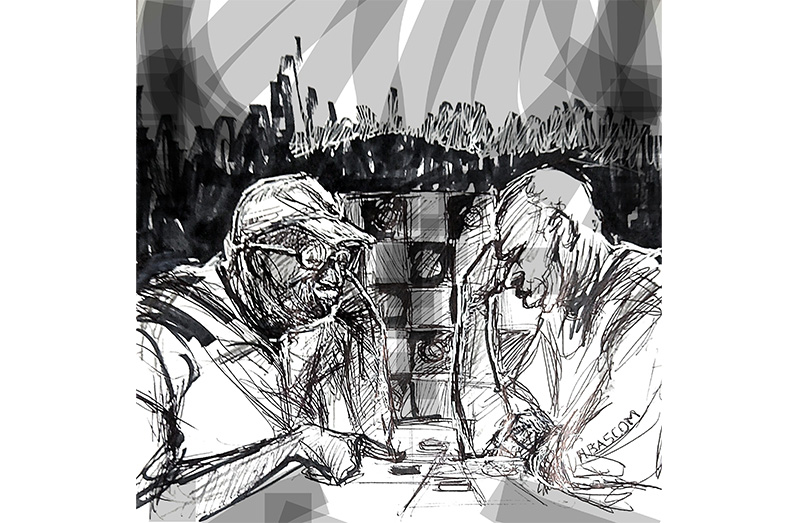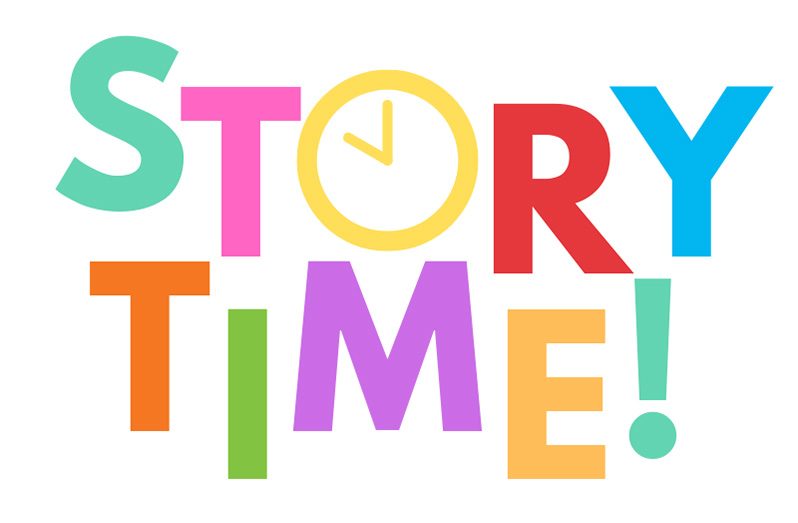By An Anonymous Guyanese Writer
Drifting back lazily below the white seaplane with red and white wings tipped with deep yellow are square miles, square miles of turbulent rainforest. Down below, a vast clearing of felled trees is no more than a bald spot in an immeasurably vast carpet of green. Down below pass the Essequibian hinterlands. The pilot looks down and remembers the single-engine aircraft that crashed with three English geologists. Two weeks ago, somewhere in the vast region below. No wreckage has yet been found.
He looks over to his co-pilot, who sits with his head thrown back, eyes closed, and lips moving silently as the monotonous sound of the seaplane’s radial engines wafts over him. The pilot checks the time: Five thirty. The thought of the rainforests doesn’t worry him much, save for vague apprehensions that one day his turn may come to sink below the leafy sea drifting back beneath their feet. He forever hopes that, should it happen, he will survive the crash and be found. Maybe every dead “bush pilot”, whose remains lie undiscovered below, harbored the same hope.

His co-pilot blurts, “Bar!” and opens his eyes to smile triumphantly: Bartica, a vast, populated clearing in the green Wilderness through which a great river courses, is coming up. A riverine settlement.
The eyes of the Amerindian child, which, a moment ago, were watching two elderly black men playing a game of” draughts are now raised to the sky. The scheduled red and white seaplane moans across the sky above him. The movement of the boy’s head follows it in its circling descent to the river. He runs off to witness the touchdown.
###
Fifty-five-year-old Josiah Smith sits at a game of draughts with his neighbor, who is slow at deciding moves. Smith waits. His eyes, misty with cataracts, peer intently from the burnt, crease-lined landscape of his face and gradually shift from the checkered playing board to the great white house on the hill with the short-bladed, emerald green grass.
“You know something, Mase’n ?” he says to his contemplative friend.
“Oh, God, Smitty!” snaps Mason. “I thinkin’ man!”
Smith smiles mischievously and mumbles something apologetically. Passing a calloused palm around the nape of his neck, he feels his grey negro’s hair and shakes his head. A sound, rising and falling, a growling sound, almost animal, comes over to the two men at their game. They pay no heed. The sound of the seaplane, taxying on the brown-faced river, has become for them just another sound at this time of the afternoon.
Mason makes a move. Smith makes a move. Mason grins. Smith’s brows furrow.
“Watch this, Smitty!” watchin’.”
“Bam! Bam! Bam! Three shot, Smitty!”
“You mean is done the game done?” says Smith in mock amazement.
“You askin’?” Mason, filled at last with victory, closes his eyes and laughs like a story-book witch, and then slaps his left knee with a thumbless left hand.
Josiah Srnith’s home stands a little way from the shade of the old mango tree under which he and his friend pass away the time of another afternoon. It is a small, neatly built, unpainted one-bedroom wooden house standing on short, thick wallaba-wood stilts. It has two flights of stairs with a maximum of four treads each. One stair leads to the back door and the kitchen, where bluish coal-pot smoke pours through the gable ends of the kitchen roof. The smell of breadnuts, steaming after being boiled, comes with it. The other stair leads to the front door, which has a horseshoe nailed onto it. Many of the locals believe that horseshoes ward off evil spirits. The windows are of wood. They have no glass panes and are like small wooden doors opening outward. The thatched roof is made of neatly plaited leaves from the troolie palm.
There is a rebellious wailing. Smith knows it is his one-year-old grandson, Michael Rayburn Apata. It is not uncommon to hear Josiah Smith saying: “Michael Rayburn Apata … yes, that is a name ah really like.” The wailing turns into a rebellious scream. “Jane!” the old man snaps. What happen to Rayburn?”
“Aw, man!” his wife snaps back. “Play your draughts and mind your own bloody business! You too damn fussy over this disgusting boy!”
“The woman too right,” mumbles Mason. But once more, Smith is contemplating the great white house on the hill with the mowed green grass. It is a neatly built wooden structure that stands on concrete pillars. The roof is made up of galvanized sheet metal that gleams under the sun’s rays. Yellow light glints oil on the glass panels of the many windows; each has a panel of mesh that keeps out the large forest insects that are attracted by the light that will burn from the powerful bulbs that go on when the generator, in the little shack at the back of the great white house, throbs at night. Josiah Smith remembers that he will have to get kerosene oil for his lamps.
A white woman with yellowish hair and a blue apron over her red-flowered skirt comes out on a back verandah of the executive house on the hill- She is taking bits of clothing off a line on pulleys; as fast as she unclips a few articles she, she pulls and more dry laundry are there for her to unclip and drop into her yawning clothes basket decorated with Amerindian designs.
Josiah Smith is unconscious of his slightly gaping mouth and the wrinkle of wonder on his face.
“Mase’n…”
“Eh? Wha’?”
“Like you was dozin’ off man?”
Mason yawns.
“Mase’n, you ever work at places like Matthew’s Ridge, Tumatumari, or Mackenzie?
“Man, Smitty, how you think me lose me big finger?”
“But Mase’n … you ever notice how in all them places the people and the other upper tenths they’re always livin’ on de hills?”
Michael Rayburn Apata screams again, shrilly.
“Jane! What you beatin’ that boy for, eh?”
“Hear J.S.! They say grandmothers does spoil children! But I not going to spoil this one! Ah will clap hands on his little black backside every time he slip! He like to play with fire!”
“You right, Mistriz. Spare the rod an’ spoil the chile,” mumbles Mason; then, with his palms resting in the small of his back, he raises himself with apparent effort. “Smitty, I goin’ home, man. … I goin’ an’ res’ Gawd material lil’, you know, this body God give me.”
“A’right Mase’n boy.”
And with that, Josiah Smith takes up the draughts board and the little varnished box with the black and white playing pieces arranged within it.



.jpg)










